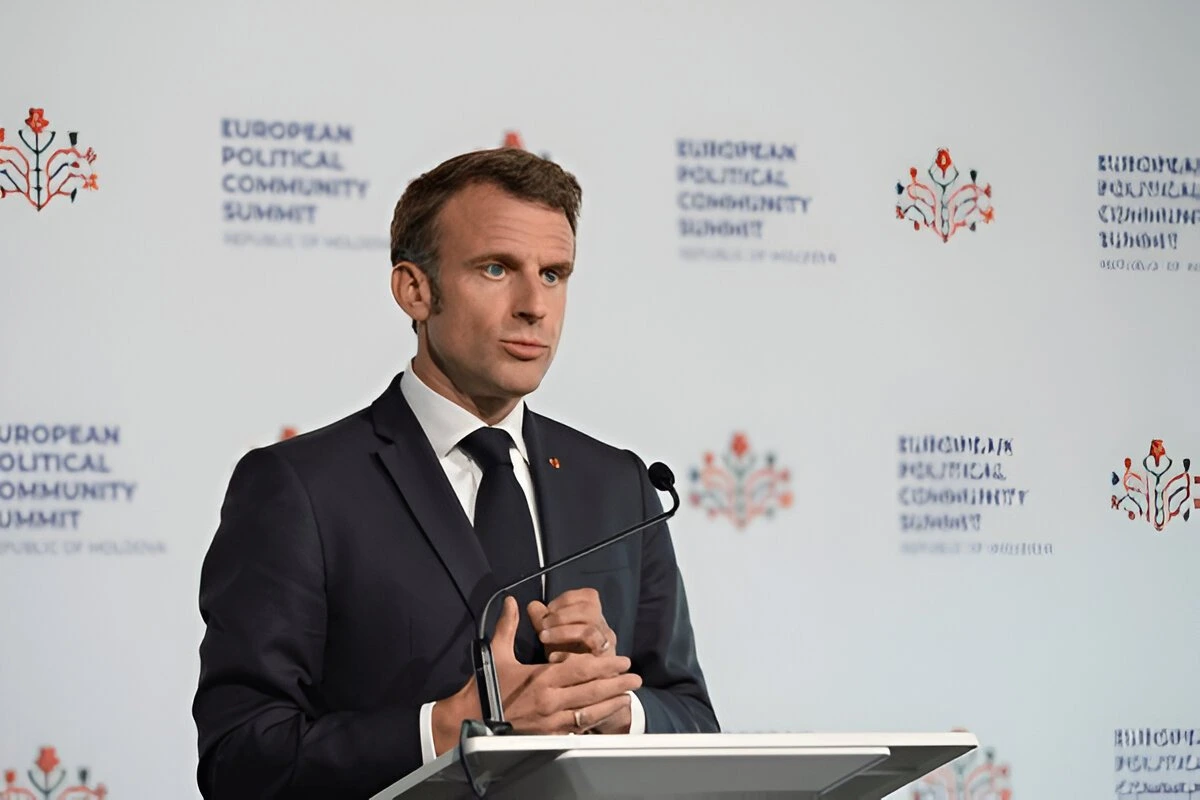Macron Unveils Plans for 109B AI Investment in France: A French AI Project Set to Revolutionize Artificial Intelligence
In a bold move that signals France’s commitment to technological advancement, President Emmanuel Macron has unveiled a massive €109 billion AI investment plan for artificial intelligence. This ambitious initiative, described as a flagship french ai project, aims to transform the country into a global leader in AI innovation. The plan, announced at a recent tech summit, is designed to boost research and development, foster public-private partnerships, and streamline regulatory frameworks. With such a comprehensive strategy, Macron envisions a future where AI drives economic growth, improves public services, and strengthens national security.
The Vision Behind Macron’s AI Investment
A New Era for Artificial Intelligence in France
Macron’s announcement marks a turning point for the French technology landscape. By committing €109 billion towards artificial intelligence, the government is not only addressing current challenges but also preparing for future disruptions. This french ai project is set to support breakthrough research in machine learning, robotics, and data analytics, ensuring that France remains at the forefront of global technological advancements.
Strategic Objectives of the Investment
The investment plan is multifaceted. Key objectives include:
- Boosting Research & Development: Funding will be allocated to cutting-edge research centers and universities to develop next-generation AI technologies.
- Strengthening Industry Partnerships: The government plans to collaborate with private companies and startups to create a vibrant ecosystem that nurtures innovation.
- Improving Regulatory Frameworks: New policies and regulations will be established to facilitate the ethical development and deployment of AI, protecting citizens and businesses alike.
- Fostering Workforce Transformation: Macron’s plan includes initiatives to reskill and upskill the workforce, preparing them for an AI-driven economy.
Key Components of the Investment
Financial Support and Funding Mechanisms
The €109 billion allocation will be channeled through various funding mechanisms:
- Grants and Subsidies: Direct support for research projects in universities and private R&D centers.
- Tax Incentives: Tax breaks and credits for companies investing in AI development and innovation.
- Public-Private Partnerships: Collaborative efforts between government bodies and private enterprises to co-fund strategic projects.
- Venture Capital Support: Boosting the startup ecosystem through government-backed venture funds, ensuring that promising AI startups have access to necessary capital.
Infrastructure and Technological Advancements
A significant portion of the investment will be used to upgrade technological infrastructure:
- Data Centers and Cloud Infrastructure: Expanding capacity to handle large-scale AI computations and data storage.
- High-Speed Connectivity: Enhancing broadband and 5G networks to support real-time data transfer essential for AI applications.
- Advanced Laboratories: Setting up state-of-the-art research facilities equipped with the latest technologies in AI and robotics.
Educational Reforms and Workforce Development
Recognizing that human capital is crucial for the success of any technology initiative, the plan includes:
- Curriculum Overhaul: Integrating AI and machine learning courses into school and university programs.
- Training Programs: Offering vocational training and certifications in artificial intelligence for professionals.
- Collaboration with Industry Experts: Partnering with global tech leaders to provide mentorship and skill development programs.
- Internships and Research Opportunities: Creating pathways for students to work on real-world AI projects, ensuring they gain practical experience.
Impact on the Global AI Landscape
Positioning France as a Global AI Leader
This massive investment is expected to have a transformative impact not only on France’s economy but also on the global AI arena. By positioning itself as a hub for artificial intelligence, France aims to attract top talent, innovative startups, and international partnerships. The french ai project will likely stimulate economic growth and generate employment opportunities across various sectors, from healthcare and finance to transportation and defense.
Enhancing International Competitiveness
With competitors like the United States, China, and the European Union ramping up their own AI initiatives, Macron’s strategy is a decisive step to ensure France does not fall behind. The integration of advanced AI technologies in public services, industrial production, and digital infrastructure will strengthen France’s international competitiveness. Investors and multinational companies are watching closely, as this initiative may redefine global supply chains and innovation ecosystems.
Challenges and Considerations
Regulatory and Ethical Challenges
Implementing such a comprehensive french ai project is not without challenges. The government must address potential regulatory hurdles related to data privacy, ethical use of AI, and cybersecurity. Striking the right balance between innovation and regulation is critical to avoid stifling creativity while ensuring public trust.
Financial and Logistical Hurdles
Allocating and managing €109 billion is a monumental task. Efficient distribution of funds, transparency in execution, and robust oversight mechanisms are essential to prevent mismanagement. Additionally, coordinating between multiple stakeholders—government, private sector, educational institutions, and international partners—requires strong leadership and collaboration.
Workforce Transition and Skill Gap
While the investment plan includes provisions for reskilling the workforce, there is an inevitable challenge of bridging the skill gap. Rapid technological advancements may render current skill sets obsolete, necessitating continuous training and adaptation. Ensuring that a broad spectrum of the population benefits from these opportunities is vital for achieving inclusive growth.
The Road Ahead
Macron’s announcement of the €109 billion french ai project is set to reshape France’s technological and economic landscape. With a focus on research, industry collaboration, infrastructure upgrades, and workforce development, the plan positions France as a key player in the future of artificial intelligence. While challenges remain—particularly in regulation, funding management, and skill development—the potential benefits far outweigh the risks.
In the coming years, the success of this initiative will depend on effective execution, adaptability to global trends, and sustained commitment from both public and private sectors. As France embarks on this transformative journey, the world will be watching closely. The initiative underscores France’s ambition to not only lead in artificial intelligence but also to foster a secure, innovative, and competitive digital economy. Ultimately, this french ai project is poised to become a cornerstone in the global AI revolution.
FAQs on Macron’s AI Investment in France
Q1: What is the primary objective of Macron’s €109 billion AI investment?
A1: The main objective is to transform France into a global leader in artificial intelligence by boosting research, upgrading infrastructure, fostering industry partnerships, and reskilling the workforce.
Q2: How will this investment impact the global AI market?
A2: The initiative is expected to enhance France’s competitiveness, attract international talent and investments, and drive innovation across sectors, thereby influencing global AI trends.
Q3: What are the key challenges in implementing this French AI project?
A3: Challenges include regulatory hurdles, managing the large investment efficiently, bridging the skill gap in the workforce, and ensuring ethical and secure use of AI technologies.



